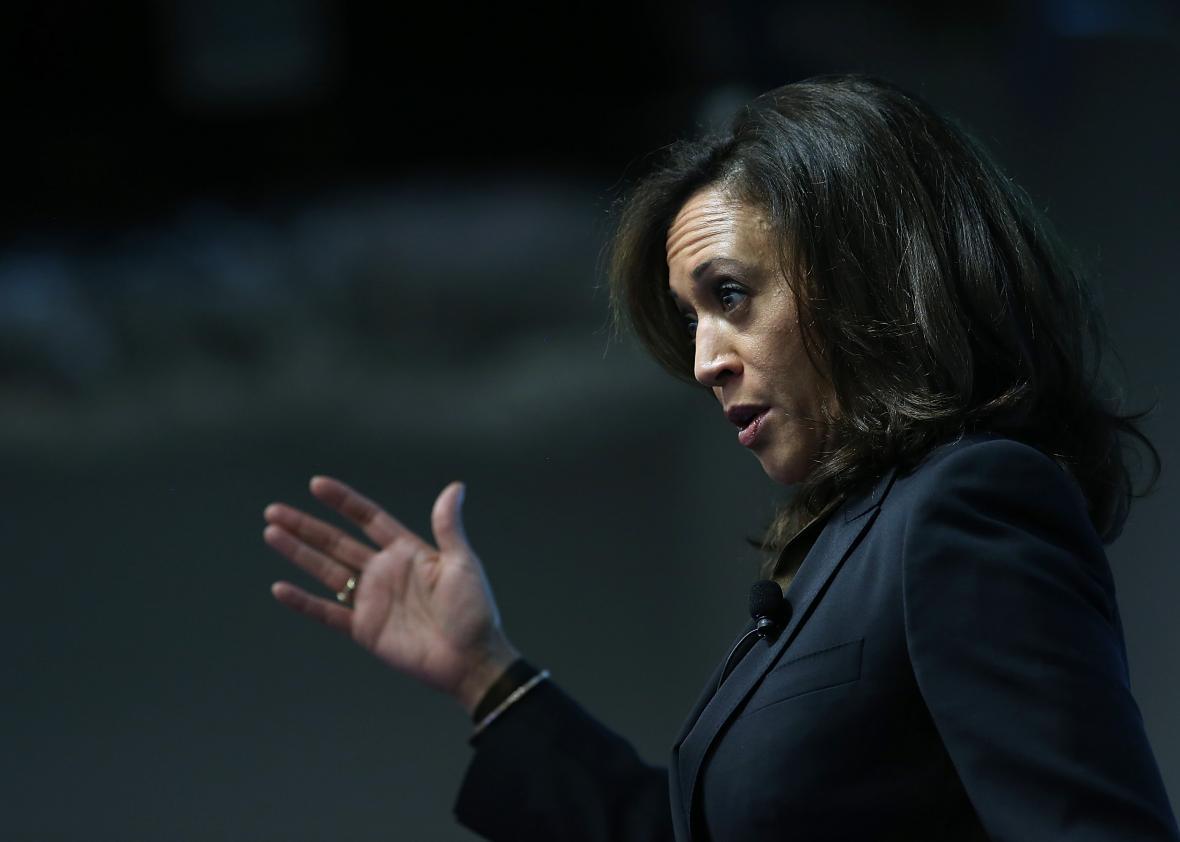Tuesday’s main event is California’s Democratic presidential primary, which may—or may not—serve as Bernie Sanders’ last stand. But there’s a potentially more important contest taking place in the Golden State that same day: the open primary for the U.S. Senate seat soon-to-be vacated by the retiring Barbara Boxer.
If a year’s worth of polling proves correct, California Attorney General Kamala Harris and California Rep. Loretta Sanchez will advance to a two-candidate runoff this fall after the final primary votes are tallied. That would be noteworthy for a number of reasons, but among them is this: Both Harris and Sanchez are Democrats. Thanks to the state’s unique nominating system—in which candidates from all parties compete in a single primary with the top two finishers earning spots in the general election—that means Democrats are likely to wake up on Wednesday morning knowing that they’ll no longer have to worry about protecting one of their 10 Senate seats that will be up for grabs in November. California is a blue state, and it would have taken a significant upset for Republicans to poach Boxer’s seat in the fall—particularly in a presidential election year—but putting a notch in the win column five months early isn’t nothing.
A Harris-Sanchez runoff would be notable for another reason, too: It would effectively ensure that a woman of color will be elected to the U.S. Senate for only the third time in the nation’s history. Harris, the daughter of immigrants from India and Jamaica, would become only the second black woman to serve in the Senate (Sen. Carol Moseley Braun, elected in Illinois in 1992, was the first); Sanchez, the daughter of Mexican immigrants, would become the first Latina to ever serve in the upper chamber.
Polls aren’t perfect, of course, and there are a few wild cards in play. This is the first time that California’s so-called top-two primary—which went into effect in 2011—will be used to winnow the field in a U.S. Senate race without an incumbent. (Democratic Sen. Dianne Feinstein won nearly 50 percent of the vote in the state’s 2012 primary and then coasted to re-election that fall by 25 points over Republican Elizabeth Emken, who took the second slot in the general election by being the only other candidate to crack double digits in the primary.) Voters will also have to find their candidate of choice on a ballot with 33 other candidates, which could lead to plenty of confusion and undervoting in the down-ballot race.
Still, all signs point to a 1-2 finish, in that order, for Harris and Sanchez. The two have topped every major state survey taken since pollsters began asking the question roughly a year ago. In the most recent two polls—both taken in the final week of last month—Harris had a double-digit lead on Sanchez, who had her own double-digit lead on third-place Tom Del Beccaro, one of a handful of Republicans stuck in the mid-single digits. Given the high interest in the state’s Democratic presidential nominating contest—and the relatively low interest in the GOP one—Harris and Sanchez should also benefit from strong turnout among Democrats.
Assuming the two do snag the two spots in the general election, it will set up one of the more interesting Senate races in the country. Harris hails from Northern California and has the support of the Democratic establishment. Sanchez represents a district in Orange County and is selling herself as a centrist, which could attract Republican voters without a conservative option in the race. Regardless of the ultimate outcome, though, Boxer’s seat would remain in Democratic hands at a time when a single seat could decide control of the Senate.
Previously on the Slatest: Republicans Are Afraid Trump Will Cost Them the Senate. They Should Be.
